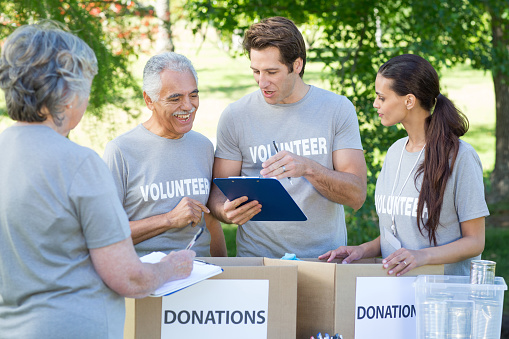My friend has not forgiven her mother for telling her own young children about a tragedy in their family and sharing details she wanted to wait until they were older to know.
When my friend asked, “How could you?” her mother replied, “They were old enough to know.”
When someone hurts you or someone you love, it can be challenging to forgive. The bad behavior may be the result of spite, flat-out meanness, low self-esteem, selfishness, or thoughtlessness. It may be due to mental health issues, old family dynamics, or addiction. Whatever the reason, the process of forgiving is similar. And so is the sting.
Why Forgiveness Is Important
Recently, the concept of forgiveness has become of great interest to social scientists and researchers. As it turns out, forgiving is good for you. Experts are seeing the benefits for those who do — and the fallout for those who don’t.
Studies show that the act of forgiveness can improve cholesterol levels and sleep, reduce the risk of heart attack, lower blood pressure and back pain, and lead to better relationships. On the other hand, it appears that holding grudges and staying angry can trigger heart problems, raise cholesterol, boost hypertension, or lead to depression and stress.
A University of Michigan School of Medicine study involving 2,110 middle-aged men showed that those who dealt with their anger had half as many strokes over a seven-year period as those who hadn’t managed their anger.
Insight Into Those Who Forgive
It may seem incomprehensible that Nelson Mandela, who was imprisoned for 27 years, chose to forgive his captors. He did!
In his 2018 book Jolt: Stories of Trauma and Transformation, Mark Miller interviews dozens of people who were able to find meaning from tragedy. For those who did best, “forgiving was a way to restore balance and peace in their own lives. They weren’t condoning the misdeeds,” he says.
Forgiveness helps you take control again. No one says you have to trust the person who hurt you or even continue the relationship.
Five Forgiveness Strategies
1. Reframe the situation. Rather than think, “How could she have done this to me?”, try asking yourself, “Why am I letting this destroy me?
2. Give yourself time to grieve. “Being in the moment with our own brokenness allows healing to take place. That is where the trauma work occurs, accompanied by unlimited compassion for our own hurt,” says John Chupka, founder of The Forgiveness Center in Troy, New York.
Chupka believes, “forgiveness is a messy process. It is not a linear program where there are steps to completion. Sometimes it is one step forward and two steps backward. Most importantly, it truly is one breath at a time.”
3. Level with yourself. Was there a part you played in the situation or is there no question that the other person was flat-out wrong? Is there any way to look at it from the other side? Would you do anything differently next time? You can always ask a more objective party such as a family member, friend, or professional for feedback.
4. Try figuring out what they were thinking. Did the person even realize what they had done and why it was so hurtful to you?
5. Focus on the good in your life. Clearly, allowing hurt and anger fester will just bring you down.
Forgiveness: Some Resources
If you’re working on forgiveness issues in your life, here is some additional information you may find helpful:
- Stanford University’s Forgiveness Projects, offer a series of research projects and consumer workshops.
- The International Forgiveness Institute, started by Robert D. Enright, Ph.D., at the University of Wisconsin-Madison, gives an overview of the topic and a comprehensive forgiveness “how-to.” He is also the author of 8 Keys to Forgiveness and Forgiveness Is a Choice.
- The Forgiveness Toolbox, created by British social psychologist Dr. Masi Noor, offers skills to lessen the hurt and work on moving past it.
- Everett Worthington, a psychologist and expert on forgiveness, has developed a five-step process (called REACH) for forgiving, along with a downloadable workbook.
Wouldn’t it be wonderful if you could just decide to forgive and then, boom, you move on? For most of us, it’s not that easy. Even though truly forgiving can be challenging, it is up to you to decide what you want to do. If you can forgive, do. If you can’t forgive, at least you will know why it makes sense to try.
If you enjoyed reading about forgiveness and why it is important for your well-being, check out these articles to learn more about:







So why don’t you guys have a forgiveness insurance rate
I believe I have forgiven certain people who have given much pain through the years. I’m alone now after my much loved second husband recently passed. Now I have been having flashbacks of those bad events. I wish I could forget.
Marge, we are sorry to hear of your loss.
Thank you for this insightful article, I was pleased to see it. I too have been deeply deeply hurt by members of my close family and have struggled for several years with the fallout from what occurred, and unfortunately continues to occur which has caused bouts of depression and health issues. The hardest part is accepting the fact that someone you trusted could betray you — and then comes the journey of trying to walk out that forgiveness, and what a journey it is! After trying to make amends on several occasions only to have the same thing happen again, I have come to realize that it can only be done with the help of God by his Grace and trying to show the person(s) who hurt us the same Grace that was shown to us, we can’t do it in our own strength. As the famous statement goes,”Unforgiveness is the poison you drink hoping the other person will die”. Its a hard pill to swallow sometimes, but it’s true that forgiveness doesn’t mean continuing the relationship and allowing that person(s) to commit any further damage in your life. The power is in letting go and not giving that person control over you or your emotions anymore. Then you can rest in knowing you did the very best that you could!
I received the following post recently, ” Forgive others not because they deserve forgiveness but because you deserve peace.”
I personally have a few people that have damaged our family gravely. One person actually was a off duty correctional officer. (driving drunk). He killed our brother which ended up with a 5 car pile up. People have asked me to forgive and forget . Like it says in your article. My response is forgive maybe , forget never. I pray to GOD and I feel so much better. I remember a quote that my deceased brother taught me.” Thank you Jesus, Love you Jesus, Praise you Jesus.
The hardest thing about trying to forgive is realizing that forgiveness doesn’t mean you forget what happened, you just try to take the blame out of it; also it is so important to look at your part in the whole event and put the “I” back into it, not the “he” or “she” did this to me.
Many of these posts go back a month, yet they are “awaiting moderation.” I forgive you.
My mother used to say, “One hundred years from now, no one will know the difference.” That’s a great philosophy. People who wallow in self-pity have an exaggerated sense of their own importance in the grand scheme of things.
I do agree you need to forgive someone who has wronged you as it helps to get rid of the anger because that is what harms you. About the forgetting part that is not so easy, I find writing out what happened and relieving the hurt helps you to over come the damage that has been done allowing you to move on and put it behind you.
I just need to learn how to forgive a person whom did something to me and move on with my life . It’s been a year and im dead on the inside and that it eats at me im depressed so much all the time and so hurt , I have talked to God .
Very good information. Forgiveness is healing to the spirit, mind and body.
The mom was wrong to tell the kids. She should have apologized rather than make excuse.
Wow what a well-timed article with useful references in the process of healing also!
I’ve just been severely traumatized by an event in my extended family and this will give me some hopefully great tools to deal with this trauma which frankly is eating up my thoughts and emotions over the last few days .
I know Jesus’s admonitions and teachings, but hopefully this will provide me some tools to actually help implement that in my heart to be a peace.
It is better to forgive than not have that person in your life. There is always a way to forgive if you love that person. You may not be the only one who is grieving.
Someone asked how can you forgive and forget. You can forgive, but some hurts you cannot forget. This includes when the other person has hurt you deeply,and do not ask you to forgive them.You ask them for their forgiveness, and do not bring it up to that person anymore. Prayer helps greatly with this process. {Been there}
The greatest benefit of forgiving is God’s blessings. The physical benefits help us live a healthier life.
My main comment to this article/post is my amazement and gratitude that a company such as The Hartford would go public with their concern for the physical/mental welfare of their customers and the public in general. This is totally opposite to the atmosphere of oppressiveness in our world today. So thank you The Hartford for the hope of a better world,.one company/person at a time.
Useful and essential for peace of mind. I once I heard additional advice re: forgiveness–“forgive AND don’t forget to remember that you/I forgave. :).
My son has held resentful feelings towards me for years, and I feel he wants to patch things up between us, and I told him I loved him, and sorry for leaving him when he was younger, and told him that I could never change that either !!
I don’t know if you can forget a comment or event. Forgiving let’s you move on in peace.
This is for Jose; most all of us need some guidance on how to forgive as we probably never were taught this important skill.
Check out Gary Craig’s website: emofree.com. Gary has developed an amazing, very effective protocol for dealing with unpleasant events and even deep trauma which includes forgiveness. He has had tremendous success with combat veterans with PTSD. His protocol is free for the most part.
There are other resources of course as this topic, as the article mentions, is receiving a lot of attention currently.
Post again, Jose, and let us know if you found something helpful in Gary’s website or anywhere :).
You missed the most important reason to forgive. God tells us to forgive others, as we pray for Him to forgive us.
Maybe you should as a company, practice what you preach- or at least do your home work before you decide to act.
i enjoyed this very much i will share with my family and maybe can help them also
I read the forgiveness topic lots of information that i did not know. How can one forgive and forget ?
Wonderful! Thank YOU!